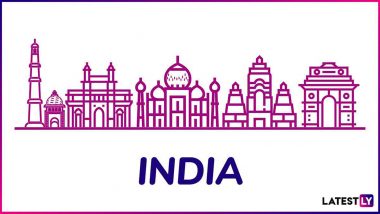New Delhi, Sep 27 (PTI) The decision to grant 10 per cent EWS quota in admissions will not impact the availability of seats for the general and reserved categories as 2,13,766 additional seats will be added to those already existing in higher educational institutions, the Centre Tuesday told the Supreme Court while defending the 103rd constitution amendment.
A five-judge constitution bench headed by Chief Justice U U Lalit, which reserved its verdict on pleas challenging 10 per cent reservation for the economically weaker sections (EWS) in admissions and government jobs, was informed by Solicitor General Tushar Mehta the government has provided Rs 4,315 crore to central higher educational institutions to create additional infrastructure to meet the demand for raising the seats.
At the fag end of the hearing, the bench asked the law officer to provide data about the number of scholarships available to those pursuing professional courses.
“What are the kinds of scholarships you give for medical, engineering and other professional courses? The poorest of the poor in all categories...,” it asked.
Also Read | Supreme Court Reserves Judgment on Petitions Challenging EWS Quota in Admissions, Jobs.
The law officer, who was advancing his rejoinder submissions on the 7th day of the hearing which commenced on September 13, said such figures will be needed for Parliament to take action and these issues would not impact the constitutionality of the amendment.
On the other hand, academician Mohan Gopal, senior lawyers including Ravi Verma Kumar, P Wilson, Meenakshi Arora, Sanjay Parikh, and K S Chauhan and advocate Shadan Farasat urged the bench, which also comprised Justices Dinesh Maheshwari, S Ravindra Bhat, Bela M Trivedi, and J B Pardiwala, to strike down the constitutional amendment.
Most of the lawyers opposed to the EWS quota contended the amended law excluded the poor belonging to the Scheduled Castes (SCs), Scheduled Tribes (STs), and Other Backward Classes (OBCs), and defeated the creamy layer concept.
The solicitor general said the central government, as a sovereign, had responded to the wishes and aspirations of the poor people.
“It is submitted that contemporaneously with the constitutional amendment a decision was taken, in order to ensure that the seats available to the reserved category and the open category are not impacted in absolute numbers.
"The Department of Higher Education issued orders on January 17.01.2019 to all the Central Educational Institutions to increase the intake in all branches of study to provide for 10 per cent reservations for Economically Weaker Sections, while protecting the proportionate reservations for Scheduled Castes/ Scheduled Tribes and Other Backward Classes and also not reducing the seat availability in the General category (in absolute numbers) in the year 2018-19,” he said.
The law officer said as per the calculations, in order to provide the EWS quota, without adversely impacting the proportionate existing reservations and not reducing the seat availability for the general category in absolute numbers as compared to the admissions made in 2018-19, the total increase in intake has to be raised by approximately 25 per cent.
“A total of 2,14,766 additional seats were approved to be created in the central educational institutions; and an expenditure of Rs 4,315.15 crore was approved to be incurred to improve the infrastructure in the higher educational institutions,” he said.
Mehta said Attorney General K K Venugopal would be also filing a separate short note in the case.
At the outset, senior advocate Ravi Varma Kumar commenced the rejoinder arguments and again referred to the exclusion of SCs and STs and OBCs on the ground of their caste and said the EWS quota "destroyed the equality code".
He assailed the submissions of the two top government law officers that SCs, STs and OBCs are a homogenous group.
Kumar also opposed the submission that the EWS quota was justified as it has been accepted in the case of Right to Education (RTE) in admissions to schools, saying RTE never excluded backward classes from its ambit.
On the other hand, lawyer V K Biju favoured the EWS quota, saying SCs, STs and OBCs are all different compartments and asked as to why a poor “rickshaw puller brahmin” should not get the reservation.
Senior advocate Gopal Sankaranayanan assailed the submission that only forward class poor will get the reservation, saying people belonging to Muslim, Sikh and Christian faiths will also benefit from the scheme.
The top court heard as many as 40 petitions and most of the pleas, including the lead one filed by 'Janhit Abhiyan' in 2019, challenged the validity of the Constitution Amendment (103rd) Act 2019.
The Central government had filed some petitions seeking transfer of pending cases, challenging the EWS quota law, from various high courts to the apex court for an authoritative pronouncement. The bench had on September 8 framed three broad issues for adjudication arising from the pleas challenging the Centre's decision to grant 10 per cent reservation to EWS in admissions and government jobs.
"Whether the 103rd Constitution amendment Act can be said to breach the basic structure of the Constitution by permitting the State to make special provisions, including reservation, based on economic criteria," read the first issue framed.
The second legal question was whether the constitutional amendment could be said to breach the basic structure by permitting the state to make special provisions concerning admissions to private unaided institutions.
"Whether the 103rd Constitution amendment can be said to breach the basic structure of the Constitution in excluding the SEBCs/OBCs, SCs/STs from the scope of EWS reservation," the third issue, to be adjudicated upon by the bench, read.
(This is an unedited and auto-generated story from Syndicated News feed, LatestLY Staff may not have modified or edited the content body)













 Quickly
Quickly

















